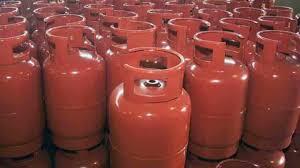News / National
Zimbabwe scraps VAT on LPG, prices fall 10%
3 hrs ago | Views

Zimbabwe's push for sustainable energy solutions has received a significant boost following the government's removal of Value Added Tax (VAT) on Liquefied Petroleum Gas (LPG), a move that has led to a 10% reduction in the price of the commodity.
Effective from January 1, 2025, the policy change has prompted the Zimbabwe Energy Regulatory Authority (ZERA) to adjust LPG prices downward, providing relief to households and industries grappling with high energy costs.
ZERA Chief Executive Officer, Eddington Mazambani, confirmed the development and emphasized its positive implications for energy affordability and sustainability.
"It is true that gas prices have been slashed in response to the removal of Value Added Tax. We have gazetted the relevant prices and anticipate this trend will continue, subject to market conditions. All value chain stakeholders have been informed and are expected to comply," said Mazambani.
The adoption of LPG as an alternative energy source has been on the rise in Zimbabwe, with statistics indicating growing household reliance on the cleaner and more efficient fuel. This trend aligns with the country's broader goals of diversifying energy sources and reducing dependence on traditional power systems.
Dr. Lovemore Gomera, CEO of the Chartered Governance and Accountancy Institute of Zimbabwe, hailed the VAT removal as a strategic decision that supports economic productivity and environmental sustainability.
"Businesses and households are increasingly using gas as a reliable form of energy. The removal of VAT is crucial, especially given the current economic environment and the need to boost production. It will facilitate the adoption of cleaner energy sources and enhance sustainability in Zimbabwe," said Gomera.
The government's focus on LPG as part of its sustainable energy strategy was outlined in the 2025 national budget, which highlighted the importance of affordable energy in addressing the country's persistent power challenges.
With the VAT exemption now in effect, the initiative is expected to ease the burden on consumers, enhance industrial efficiency, and contribute to the nation's long-term energy goals.
Effective from January 1, 2025, the policy change has prompted the Zimbabwe Energy Regulatory Authority (ZERA) to adjust LPG prices downward, providing relief to households and industries grappling with high energy costs.
ZERA Chief Executive Officer, Eddington Mazambani, confirmed the development and emphasized its positive implications for energy affordability and sustainability.
"It is true that gas prices have been slashed in response to the removal of Value Added Tax. We have gazetted the relevant prices and anticipate this trend will continue, subject to market conditions. All value chain stakeholders have been informed and are expected to comply," said Mazambani.
The adoption of LPG as an alternative energy source has been on the rise in Zimbabwe, with statistics indicating growing household reliance on the cleaner and more efficient fuel. This trend aligns with the country's broader goals of diversifying energy sources and reducing dependence on traditional power systems.
Dr. Lovemore Gomera, CEO of the Chartered Governance and Accountancy Institute of Zimbabwe, hailed the VAT removal as a strategic decision that supports economic productivity and environmental sustainability.
"Businesses and households are increasingly using gas as a reliable form of energy. The removal of VAT is crucial, especially given the current economic environment and the need to boost production. It will facilitate the adoption of cleaner energy sources and enhance sustainability in Zimbabwe," said Gomera.
The government's focus on LPG as part of its sustainable energy strategy was outlined in the 2025 national budget, which highlighted the importance of affordable energy in addressing the country's persistent power challenges.
With the VAT exemption now in effect, the initiative is expected to ease the burden on consumers, enhance industrial efficiency, and contribute to the nation's long-term energy goals.
Source - zbc



































